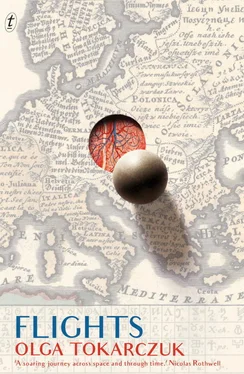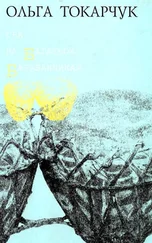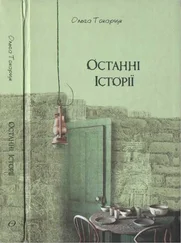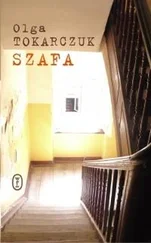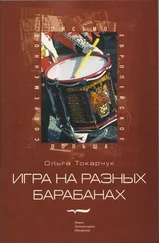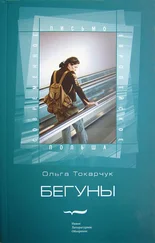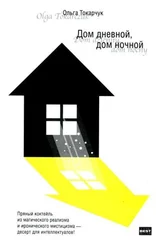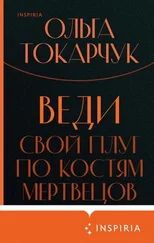They drive across the wet city, the windshield wipers working as hard as they can to clear off the water from the windshield, baring for just a second at a time the world plunged in rain, the smeared world.
It’s his day, Thursday. Thursdays he picks up his son from nursery school. She’s busy because she works all afternoon, she has some workshops or something, she won’t be back until late, so Kunicki has the child to himself.
They pull up to a big renovated brick building in the very centre of the city and look for a little while for a parking place.
‘Where are we going?’ asks the child, and because Kunicki doesn’t answer, the boy begins to repeat the question over and over: ‘Wherewegoing wherewegoing?’
‘Be quiet,’ says the father, but then, a moment later, he explains, ‘To see a lady.’
The child doesn’t protest. He must be intrigued.
There’s no one in the waiting room; a towering woman around the age of fifty appears almost immediately and ushers them into her office. The room is bright and pleasant – in the middle of it there’s a large, soft, colourful rug with toys and blocks on top. Then there’s a couch and two armchairs, a desk and an office chair. The child sits down cautiously on the edge of the couch, but his eyes wander over to the toys. The woman smiles and offers Kunicki her hand, greeting the boy, too. She talks to the child like she wants to make it very clear she’s not paying attention to the father. So he speaks first, preempting whatever questions she might ask.
‘My son has had trouble sleeping for some time,’ he lies. ‘He’s become anxious and –’
The woman doesn’t let him finish. ‘First let’s play,’ she says. This sounds ridiculous, and Kunicki wonders if she’s going to be playing around with him too. In his surprise he stands stock-still.
‘How old are you?’ the woman asks the child. The child holds up three fingers.
‘He turned three in April,’ says Kunicki.
She sits down on the rug, near the boy, and hands him some blocks; she says, ‘Your dad’s going to go sit out there for a little while and read, and we’re going to play, like this.’
‘No!’ says the child, jumping up and running over to the father. Kunicki gets it. He convinces the child to stay.
‘The door can stay open,’ the woman assures him.
He presses gently on the door without shutting it all the way. Kunicki sits in the waiting room and listens to their voices, but they’re hard to hear, he can’t tell what they’re saying. He had been expecting a lot of questions, he had even brought the little booklet with the child’s records, which he reads to himself now: birth at full term, spontaneous labour, Apgar score of 10, vaccinations, weight 3750 grams (8.3 pounds), length 57 centimetres (22.4 inches). We speak of grown-ups being ‘tall’, but a child is ‘long’. He takes a glossy magazine from the table and opens it mechanically, happening immediately upon ads for new books. He goes through the titles and compares prices. He feels a pleasant rush of adrenaline: his are cheaper.
‘Can you clarify what’s wrong, please? What you’re talking about?’ says the woman.
Kunicki feels embarrassed. What’s he supposed to say, that his wife and child just up and disappeared, that they weren’t there for three days, for forty-nine hours – he knows exactly how long it was. And he doesn’t know where they were. He’s always known everything there was to know about them, and now the most important thing is unknown to him. And then, for a split second, he imagines he says, ‘Please, you have to help me. Please just hypnotize him and get access to those forty-nine hours, minute by minute. I have to know.’
And she – that towering woman, standing straight as an arrow – comes up so close to him that he can smell the antiseptic scent of her jumper – that’s what nurses smelled of in his childhood – and takes his hand in her big, warm hands and holds him to her breast.
It doesn’t happen this way, though. Kunicki lies: ‘He’s just been restless lately, he wakes up in the night, cries. We went on holiday in August, to Croatia, to the island of Vis. I thought maybe something had happened, something we weren’t aware of, maybe something had scared him…’
He can tell she doesn’t believe him. She picks up a ballpoint pen and plays with it. She speaks with an enchanting, warm smile. ‘You have here a very intelligent child with above-average social skills. Sometimes these things just mean the child is going through a normal developmental phase. Don’t let him watch too much TV. But to me there’s nothing, absolutely nothing wrong with him.’
Then she looks at him with concern, or so he thinks.
As they’re walking out, as the child finishes up his bye-byes to the woman, Kunicki begins to consider her a bitch. Her smile strikes him as insincere. She’s hiding something, too. She hasn’t told him everything. He now realizes he should never have gone to a woman. Don’t they have men child psychologists in this city? Or have women established some kind of monopoly on children? Women are never really clear; you can never tell upon first inspection if they’re weak or strong, how they’re going to behave, what they want; you have to stay on your guard. He thinks of the pen she was holding in her hand. A yellow Bic, just like the one in the picture he got out of the purse.
It’s Tuesday, she has the day off. He’s been agitated since early, he can’t sleep, he pretends he’s not watching her morning meandering, from the bedroom to the bathroom, from the kitchen to the entrance and then back to the bathroom. The child emits a quick, impatient cry, probably when she’s tying his shoes. The sound of her spraying on her deodorant. The whistle of the kettle.
When they finally go out, he stands at the door and listens to see whether the lift has come yet. He counts to sixty – the time it will take them to make it downstairs. Fast as he can he slips on his boots and rips the bag off the jacket he’s bought used so she won’t spot him. He shuts the door quietly behind him. As long as he doesn’t have to wait too long for the lift.
Yep, things couldn’t be going smoother. He darts after her, at a safe distance, in a jacket she couldn’t recognize. He fixes on her back, he wonders if she feels somehow uncomfortable, probably not, because she’s walking quickly, briskly, you might even say joyfully. She and the child both leap over puddles, rather than bypassing them, they leap – why? Where did she get all that energy on a drizzly autumn day like today? Had the coffee kicked in already? The rest of the world seemed slow and sleepy, and she’s more vibrant than usual, her frenetic pink scarf a blot of brilliance against a background of that day; Kunicki hangs on to it like to a straw.
They finally make it to nursery school. He watches her take leave of the child, but it doesn’t move him in the least. She might be whispering something to him as she embraces him so tenderly, some word, exactly the word Kunicki has been searching for so frantically. If he knew what it was, he could type it into Wikipedia, and that cosmic search engine would in the blink of an eye give him a simple, straightforward answer.
Now he sees her as she pauses before the crosswalk, awaiting the green light, pulling out her phone and typing in a number. For a moment Kunicki has some hope that his own phone will begin to ring in his pocket, he’s got a different ringtone for her – a cicada, yes, he had assigned her the song of the cicada. Tropical insect. But his pocket remains silent. She crosses the road while she has a brief conversation with someone; she hangs up. Now he has to wait for the light to change, which is dangerous, because she’s actually going around the corner and out of sight, so he immediately, as soon as he can, speeds up his pace, already fearing he’s lost her, already beginning to be angry with himself and with those lights. Oh, to lose her only two hundred metres from home! But there she is; her scarf is floating into the revolving doors of the shop. It’s a big shop, a shopping centre, really, they’ve just opened it, it’s practically empty, so that Kunicki hesitates, whether to go in after her or not, whether or not he will actually be able to hide in between the different displays. But he has to, because the shop has another exit, onto another street, so he puts his hood on – which is perfectly reasonable, it is raining, after all – and enters the shop. He sees her – she’s walking around slowly, as if something were holding her back, and she looks at make-up, at perfume, she stops at a shelf and reaches for something. She holds a bottle of something in her hand. Kunicki rummages through the discounted socks.
Читать дальше
